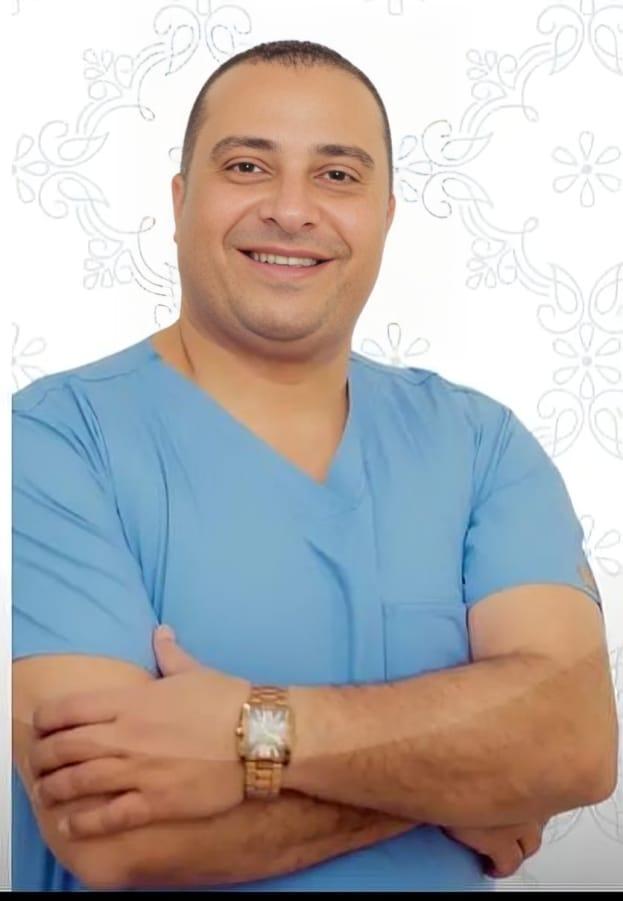Dr. Mahmoud Mokhtar | Hepatology, Gastroenterology, and Endoscopy Specialist in Suez
Dr. Mahmoud Mokhtar is a certified specialist in Hepatology, Gastroenterology, and Endoscopy. He is one of the leading doctors in the fields of internal medicine and infectious diseases. Dr. Mokhtar has an outstanding academic background and extensive experience in diagnosing and treating various liver and gastrointestinal diseases, and is renowned for performing diagnostic and therapeutic endoscopies with high precision.
Medical Specializations Offered by Dr. Mahmoud Mokhtar:
Hepatology (Adults): Treatment of chronic liver diseases such as liver cirrhosis, viral hepatitis (A, B, C), fatty liver disease, and other liver-related conditions.
Gastroenterology: Diagnosis and treatment of gastrointestinal disorders such as gastric ulcers, gastroesophageal reflux disease (GERD), irritable bowel syndrome (IBS), inflammatory bowel disease, and other stomach and intestinal issues.
Endoscopic Procedures: Performing diagnostic and therapeutic endoscopies for examining the gastrointestinal tract and liver, including gastroscopy and colonoscopy.
General Internal Medicine: Providing consultations and treatment for common internal medicine conditions such as high blood pressure, diabetes, heart issues, and endocrine disorders.
Infectious Diseases: Diagnosing and treating infectious diseases that affect the gastrointestinal system and liver, such as food poisoning, intestinal infections, viral gastroenteritis, and hepatic infections.
Academic Qualifications:
Bachelor of Medicine: Dr. Mahmoud Mokhtar graduated with a Bachelor of Medicine and Surgery degree from Faculty of Medicine, Mansoura University, Egypt, in 2014.
Master’s Degree in Medicine: He obtained his Master’s degree in Medicine from the same faculty in 2020, specializing in Hepatology, Gastroenterology, and Endoscopy.
Professional Experience:
2021 - Present: Serving as an Assistant Professor at the Faculty of Medicine, Mansoura University, where he teaches medical students in the fields of hepatology and gastroenterology.
2023 - Present: Hepatology, Gastroenterology, and Endoscopy Specialist at Suez Medical Complex, providing exceptional medical consultations and performing accurate diagnostic and therapeutic procedures.
Services Provided by Dr. Mahmoud Mokhtar:
Diagnosis and Treatment of Liver Diseases: Managing chronic liver diseases like viral hepatitis, cirrhosis, and fatty liver disease.
Gastrointestinal Endoscopy: Performing diagnostic endoscopies of the stomach and intestines to detect issues such as ulcers, cancer, gastrointestinal bleeding, and other abnormalities.
Consultations in Infectious Diseases: Treating gastrointestinal and hepatic infections such as food poisoning, viral gastroenteritis, and other infections affecting the liver and digestive tract.
General Internal Medicine Consultations: Offering consultations for common internal conditions such as hypertension, diabetes, heart diseases, and endocrine issues.
Consultation Fees:
Consultation Price: 220 EGP.
Follow-up Consultation: 110 EGP, valid for 14 days from the date of the initial consultation, allowing the patient to return for follow-up if necessary.
Clinic Location:
Address: Suez, Ahmed Orabi Street, Orabi Tower (above Salam Mall), 2nd floor.
Contact for Appointments: 01068930066
Why Choose Dr. Mahmoud Mokhtar?
Specialized Expertise: Dr. Mokhtar has extensive professional experience in Hepatology and Gastroenterology, and is highly skilled in performing gastrointestinal endoscopies with precision.
Comprehensive Treatment: Dr. Mokhtar offers comprehensive care for all liver and gastrointestinal issues.
Ongoing Consultations: Continuous consultations after the initial appointment ensure the patient’s condition is monitored closely.
High-Quality Care: Dr. Mokhtar is known for providing excellent medical care and personalized attention for each patient.
If you are experiencing any issues related to your liver or gastrointestinal system, do not hesitate to visit Dr. Mahmoud Mokhtar.

